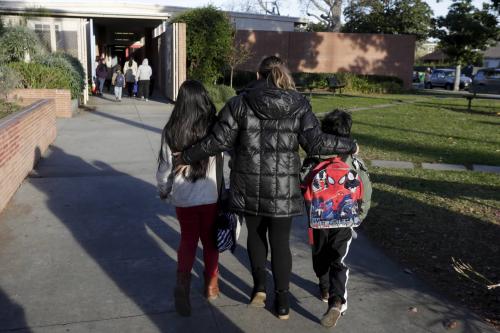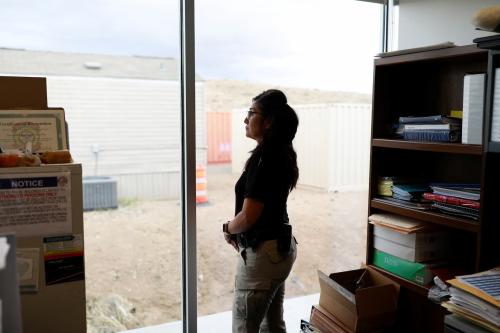The recent Louisiana Recovery and Rebuilding Conference drew hundreds of participants determined to view New Orleans’ future in a positive light. A myriad of planning ideas, ranging from the practical to the pie in the sky, were offered by a slew of invited experts (myself included) and politicians.
Infrastructure plans to make the city safe, New Economy development strategies to make it prosperous and New Urbanism ideas to improve its architectural landscape were all given public airing.
Yet as I looked at some of these, I couldn’t help wondering if too much emphasis was placed on the economic well-being of New Orleans as a place, rather than on the hundreds of thousands of New Orleans people who want to return.
As a demographer, I study populations and the way they change. The phrase “demography is destiny” is especially relevant here, as the destiny of New Orleans will surely be transformed by whatever population moves in.
What concerns me is that some of these grand visions will, perhaps unintentionally, ignore people who made New Orleans the special place it was.
Indeed, some foresee a smaller, mostly white middle-class population attracted to new upscale housing and jobs.
Others predict an increasing Hispanic presence as the rebuilding city becomes a magnet for new, low-skilled workers.
There is also speculation about changing politics in a city where reliably Democratic black voters will comprise a smaller share of the electorate.
These scenarios leave out a key element of New Orleans’ essence—the rich demographic and cultural diversity embedded in its black, Creole and multiethnic roots—which provided the zest and vibrancy for this one-of-a-kind city. I believe that this New Orleans can come back.
It may be easy to assume that Katrina evacuees, especially those from poor, low-lying neighborhoods, will be better off living in their new locales and choose to stay there. This view was given credence in a recent USA Today/CNN/Gallup poll showing that 39 percent predicted that they would not return.
However, the survey response includes those who said they “probably” will not return. That probability is largely unknown, as evacuees are still coping with a life-transforming experience.
Katrina triggered what was arguably the biggest and quickest relocation of “reluctant migrants” in American history. They left en masse without being given much chance to consider why or where they were going.
Many who were in their 40s, 50s and 60s had not traveled widely outside of their own neighborhoods, much less to a different city or state.
To people that age, social ties that developed over decades and generations are paramount. In New Orleans, statistics bear this out: 88 percent of black New Orleanians were born in Louisiana.
Compare these figures with Houston, where only 75 percent of black citizens are native-born. In Atlanta, only 57 percent of black residents are native to Georgia.
The return of New Orleans citizens will depend on the kind of reception they will receive—in terms of housing, financial resources and community support. It will also depend on how quickly plans are implemented, especially since the “best and the brightest” will find alternatives elsewhere.
The return of these New Orleanians does not necessarily mean a return to the impoverished neighborhoods of the past, since there will be opportunities to develop safer neighborhoods with better schools and more jobs.
But it will give the city’s reluctant migrants the opportunity to reestablish the rich sense of community that has always made New Orleans a special place.



Commentary
Op-edCity Can Lure Back Its Reluctant Migrants (New Orleans)
November 30, 2005